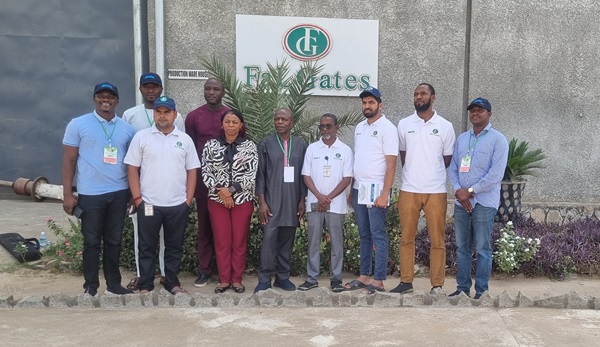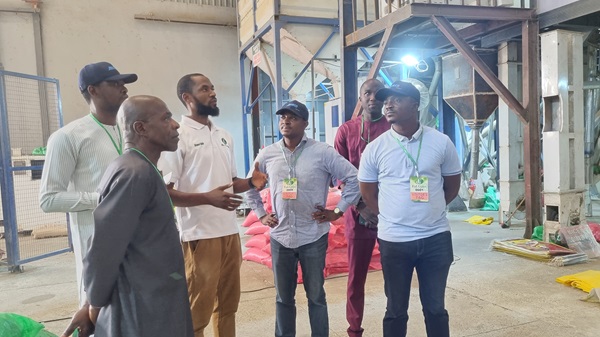
The Energy Commission of Nigeria (ECN), in partnership with the United Nations Industrial Development Organisation (UNIDO), has launched a Global Environment Facility (GEF)-supported initiative aimed at promoting industrial energy efficiency and resource-efficient cleaner production in Nigeria.
The programme, titled “Improving Nigeria’s Industrial Energy Performance and Resource Efficient Cleaner Production through Programmatic Approaches and the Promotion of Innovation in Clean Technology Solutions,” was introduced to manufacturers in Kaduna State, including FaLGates Foods Limited, during a recent technical working group visit.
At the kick-off review meeting, Industrial Energy Efficiency (IEE) Consultant for ECN and UNIDO, Engr. Okon Ekpenyong explained that the project is designed to accelerate the adoption of energy efficiency best practices within selected small, medium and large-scale industries across Nigeria. He said the ultimate goal is to reduce energy consumption, lower production costs and support sustainable environmental performance by deploying cleaner production technologies.
Ekpenyong emphasised that industrial energy efficiency focuses on reducing waste and optimizing the energy used in manufacturing processes. He noted that energy represents a major portion of industrial production costs, and any effort to reduce energy waste would translate to increased profitability and competitiveness for Nigerian manufacturers.
“You have to make companies competitive. When you calculate the total production cost, energy often emerges as one of the largest components. Minimising that cost not only increases profit margins but also contributes to more affordable prices for consumers,” he stated.
The initiative also includes a partnership with the Bank of Industry (BoI), which is providing financial support to industries willing to implement energy management systems and energy-saving technologies. Ekpenyong noted that the programme is being closely monitored by several regulatory bodies, including the Ministry of Environment, the Standard Organisation of Nigeria (SON) and the Energy Commission itself.

He called for robust data collection and analysis to establish a baseline for energy consumption in the participating industries. The collected data would help companies track their energy use, identify inefficiencies, and quantify savings over time. This, he added, would empower companies to make informed decisions that reduce both energy costs and environmental impact.
In response, the general manager of FaLGates Foods Limited, Engineer Sanusi Abdulhamid welcomed the initiative and confirmed the company’s willingness to participate fully. He described the partnership as timely and said the project would help manufacturers like FaLGates to significantly reduce operating costs.
Sanusi disclosed that his company currently spends between ₦50 to ₦60 million monthly on energy alone, and he believes the energy audit supported by the project will reveal areas of overconsumption and waste.
“This is a commendable initiative. We believe that after the audit, we will identify where we are overusing energy and make the necessary corrections. This will save us millions, not just in the short term, but consistently over time,” he said.
He added that FaLGates Foods plans to implement energy efficiency measures in phases, beginning with administrative buildings before transitioning to factory machinery and equipment.
The GEF-backed project aligns with Nigeria’s obligations under the Paris Agreement, and it reflects the country’s commitment to improving industrial performance while reducing its carbon footprint. By helping industries transition to cleaner technologies and more efficient operations, the ECN–UNIDO programme is contributing to a broader national strategy for environmental sustainability and economic competitiveness.
Stakeholders have been urged to maintain active engagement throughout the life of the programme. The long-term vision is to ensure that energy efficiency becomes a standard practice across Nigeria’s manufacturing sector. Industry experts suggest that the success of the initiative in Kaduna could serve as a model for other regions in the country and even for neighbouring African nations grappling with similar energy-related challenges.
With rising production costs and growing concerns over climate change, programmes like this are increasingly being recognised as essential tools for industrial resilience and national development. The ECN and UNIDO have reiterated their commitment to supporting manufacturers and ensuring that Nigerian industries operate efficiently, competitively, and sustainably.

